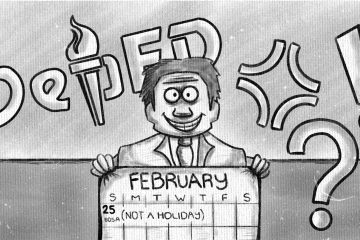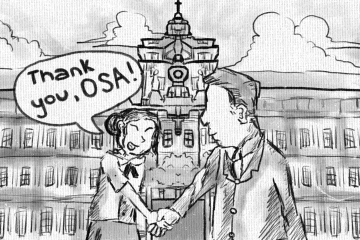
WE LIKE the idea that we are contributing to the betterment of society. And when you are stuck at home during a pandemic, the best place to do this is in the expansive digital architecture of social media. A landscape that has become a dump of cancel culture, trolls, performativity, micro-trends, and endless brain-rot ‘hot takes’ that gave me lobotomy.
I say this with pure sincerity: “Welcome to the 2020s.”
#NoToOnlineClasses, #BlackLivesMatter, #JunkAntiTerrorLaw, #MassTestingNOW, #SaveTheTurtles, #JusticeFor[Someone]—these hashtags, among others, have resurfaced and resurged within apps we have scrolled on. And in a social media culture where you are alienated for being ‘silent’ and hastily labeled as ‘apolitical,’ you feel obligated to post and show that you have spoken through hashtags.
I am not an exception to this narrative as I am guilty of believing the hashtags I posted before were powerful enough to stop specific socio-cultural catastrophes.
Trick Mirror author Jia Tolentino wrote, “It’s because of the hashtag, the retweet, and the profile that solidarity on the internet gets inextricably tangled up with visibility, identity, and self-promotion. It’s telling that the most mainstream gestures of solidarity are pure representation […] and meanwhile the actual mechanisms through which political solidarity is enacted, like strikes and boycotts, still exist on the fringe. The extremes of performative solidarity are all transparently embarrassing….”
This is where the problem of hashtag ‘activism’ lies. Other than the fact that it is allusive to performativity, people think that posting a social issue alongside the appropriate hashtag will be the end of a struggle and that doing so entails a form of solidarity. What do our nation leaders care about hashtags anyway? The truth is that these social issues are evasive to hashtags, and it would never be the finality of a certain struggle as it should only be the beginning of something.
So, how far will hashtags go?
Hashtags could raise awareness on so many adversities. In addition, it has the potential to mount a collective movement that could spark change. Take for example the hashtags that boosted donation drives during Typhoon Ulysses in November 2020.
In a way, hashtags could mobilize and present solidarity. There are instances where hashtags worked but it comes rarely since nobody is genuine anymore on the internet.
But ultimately, hashtags oftentimes remain as hashtags in the digital sphere. Unfortunately, what we may be “advocating” online is less likely to materialize in the “real world.” We have posted so many hashtags and yet so little has been done. It may have only brought out awareness in this epoch of “content” but it seemed to have stopped there. We keep scrolling on our phones until we realize that we scrolled on a whole circle, and what we have “spoken out” will keep resurging in the future with different structures of hashtags.
In the end, the blaming finger should be pointed to certain institutions for never listening to our call for justice.
Here is a testament to the parallels of social media and social issues, where “social” finds a commonality in all adversities but it eludes itself away from mobility and change. The question is raised—how far will our hashtags go? It will remain here and here only in the theatricals of social media. F
Editor’s note: This article was originally published in Vol. 58, Issue No. 1 of the Flame. View the entire issue through this link.



